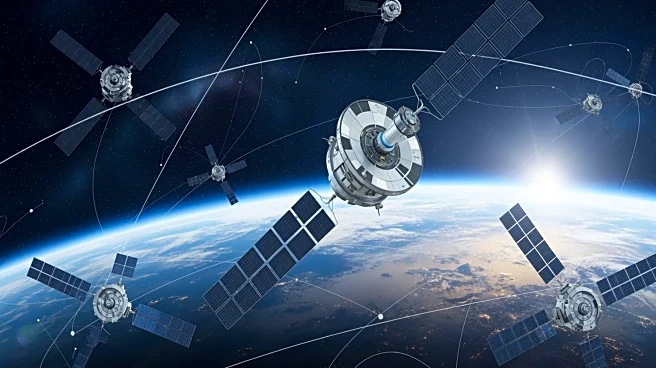What's Happening?
The U.S. Space Command (SPACECOM) is emphasizing the need for a more focused approach on dynamic space operations (DSO) to stay ahead of China, as highlighted in a report stressing the necessity for buy-in
from the Space Force, SPACECOM, and Congress. The report calls for the expansion of existing DSO enabling projects and notes positive movement in the Space Force's 15-year plan. Additionally, SPACECOM is involved in strategic initiatives such as the development of the Asgard capability, which includes AI-assisted digital targeting networks to enhance mission intelligence and decision-making.
Why It's Important?
The push for dynamic space operations is crucial for maintaining U.S. superiority in space, especially as China seeks to become the leading space power. The report highlights China's advancements in counterspace weapon systems and its efforts to extend the operational life of its space capabilities. By focusing on DSO, the U.S. aims to enhance the resilience and effectiveness of its space systems, which is vital for national security and military operations. The involvement of Congress and proper funding are essential to support these initiatives and ensure the U.S. remains competitive in the space domain.
What's Next?
The Space Force is expected to finalize its 15-year future operations plan, which may include bold decisions to prioritize DSO. The report recommends the establishment of a program office focused on creating and sustaining an in-space logistics infrastructure. This would involve designing and fielding on-orbit logistics and refining doctrines and tactics. The expansion of DSO enabling projects, such as the Satellite Communications Augmentation Resource program, is also anticipated to secure vital communication links and enhance launch capabilities.
Beyond the Headlines
The report suggests that embracing DSO could lead to long-term shifts in space operations, including the development of reprogrammable software and in-space assembly of spacecraft structures. These advancements could redefine how space missions are conducted, offering new opportunities for innovation and collaboration in the space industry.










